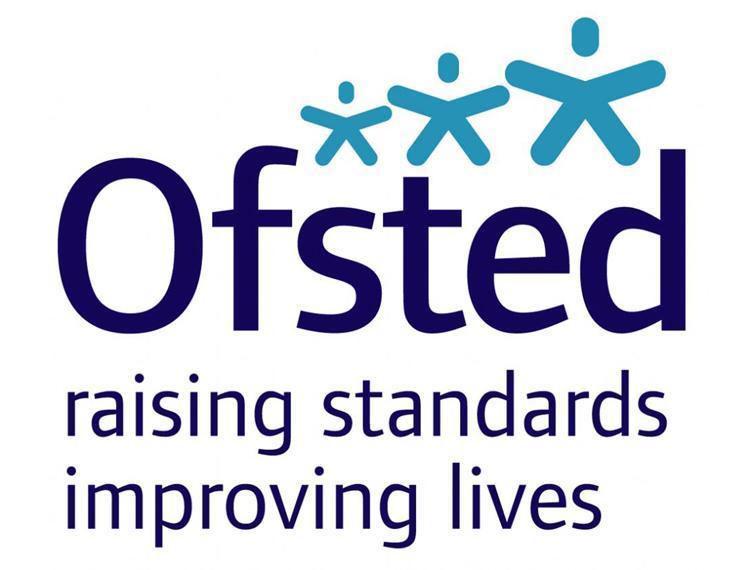Ofsted Annual Report – sector response

A world class education system is within our grasp – but only if serious capacity challenges are urgently addressed, says Ofsted’s outgoing Chief Inspector.
Sir Michael Wilshaw today hailed the “remarkable gains” made by children under 11 over the past 5 years, but warned of a growing north/south divide at secondary level and a serious knowledge and skills gaps that threatens the country’s competiveness.
Launching his fifth and final Annual Report, Sir Michael said that while England’s education system still fell short of being world class, some parts were closer to achieving that status than they have ever been.
Today’s report finds:
- The proportion of good or outstanding general further education colleges has declined from 77% in 2015, to 71% this year
- There are some signs of improvement in the quality of apprenticeships. However, the supply of high quality apprenticeships at level 3 is not yet meeting demand
- 65% of prisons and young offender institutions have learning and skills and work activities that are not good enough
Sir Michael said the government also needed to address the disparity in the quality of academic and technical pathways. He commented:
“One of the great achievements of the past decade has been the rise in the proportion of students going on to higher education. However, far more needs to be done to ensure that all young people are equipped with the skills they will need to compete in the local workforce, let alone the global one.
“Many FE colleges are facing a period of continuing turmoil while the quality of apprenticeship programmes remains patchy.
“The country is facing serious knowledge and skills gaps that threaten the competitiveness of our economy. The decision to leave the European Union has thrown this issue into even sharper relief. As a nation, we can either intervene to inject the system with the vision, skills and energy it needs, or we can be content with the status quo and the consequences of our failure to improve the quality and status of technical education over many years.”
Sector Response:
Association of Employment and Learning Providers (AELP):
With less than 6 months before the start of the apprenticeship levy, today’s Ofsted annual report shows that the independent training providers (ITPs) delivering three-quarters of England’s apprenticeships have once again improved their overall effectiveness.
82% of ITPs are now judged good or outstanding while nearly two-thirds of apprenticeship provision delivered by all types of provider is judged to be of the same quality.
 Commenting on these findings, AELP CEO Mark Dawe said:
Commenting on these findings, AELP CEO Mark Dawe said:
“There is scope for further improvement in some apprenticeship programmes, but to those who feel that the apprenticeship reforms may be just about achieving the government’s 3 million target, we would say the picture is looking bright. High quality independent training providers deliver a large majority of apprenticeships and therefore both employers and apprentices will benefit from entrusting their programmes with them. Today’s Ofsted report is a reminder to businesses and young people to exercise their apprenticeship choices with care.”
GCSE retake policy rightly under question
AELP welcomes the Chief Inspector’s view that having to retake GCSEs can be ‘demotivating’ and that for many students, an alternative level 2 qualification may be a more appropriate means of improving their English and maths and ensuring that they are ready for work. The observation comes a day after the government itself published a draft degree-level apprenticeship standard for NHS nurses which allows for attainment in an alternative such as Functional Skills. AELP is now urging ministers to get fully behind Functional Skills as acceptable across all apprenticeship standards without any further delay.
Similarly we believe that Ofsted is right to be critical of the current end-point assessment (EPA) aspects of the apprenticeship reforms. We agree with the Chief Inspector that a ‘wide variability in the quality and structure of apprenticeship standards’ exists – a concern echoed in the House of Commons Public Accounts Committee report this week – and this is why we are calling for a pause in the whole standards development process until the new Institute for Apprenticeships is fully operational.
Ofsted’s observations on the variability of promotion of apprenticeships to pupils in schools are also spot on. In particular, too many schools still need to move on from seeing apprenticeships and technical education options as being ones for less-able pupils. However they are less likely to if the government adopts wholesale in its Skills Plan the proposals which were put forward in the Sainsbury review for technical and professional education which were too narrow and elitist in scope.
Area reviews’ effectiveness ‘limited’
AELP agrees with the Chief Inspector that the exclusion of the full range of post-16 providers is limiting the effectiveness of the government’s area reviews of FE provision. To achieve closer alignment to local, regional and national employment priorities, the delivery of work based learning by ITPs to employers, which is often specialised, has to be taken more fully into account.
Mark Dawe added:
‘I would urge ministers to take the Chief Inspector’s observations in this report on board before some well-intended but ill-judged sector reforms become fixed and potentially damaging. In recent months, the new ministerial team at the DfE have shown a real propensity to listen to providers who are on the frontline of delivery with employers and apprentices. Good progress is being made but in areas such as apprenticeship standards development, more deliberation is needed to avoid further policy errors.’
The Association of Colleges (AoC) responds to the publication from Ofsted of The Annual Report of Her Majesty’s Chief Inspector of Education, Children’s Services and Skills 2015/16
 David Hughes, Chief Executive of the Association of Colleges (AoC), said:
David Hughes, Chief Executive of the Association of Colleges (AoC), said:
“Her Majesty’s Chief Inspector rightly emphasises the importance of the further education sector in equipping young people and adults for successful careers but he also points to shortfalls amongst a minority of colleges.
“The report helpfully highlights the huge burden that colleges have been handed by schools failing to support young people to achieve good GCSEs in English and maths. Over 70% start college without these qualifications. This is an enormous challenge, given the huge numbers of resits, the lack of a credible alternative qualification and the inappropriateness of GCSE in preparing people for further learning and work.
“Ofsted’s annual report is challenging for colleges but it also shows how the majority of colleges are innovative, creative and resilient. Colleges are facing up to the challenges and they are making great strides to improve quality.
“As a sector, we are at a turning point, despite years of funding cuts and policy changes. This Government recognises, as it implements its Post-16 Skills Plan and rolls out apprenticeship reform, that colleges are critical to improving the life chances for millions of people and that the technical needs of the country should be on a par with the academic. Young people deserve the best start in life and adults need opportunities to progress and re-train. In order to realise this vision, we need better investment in young people and adults who deserve much more than they are getting both pre and post-16; current investment in post-16 education and training is simply not enough.”
Kirstie Donnelly, Managing Director, City & Guilds
 “It’s promising to hear OFSTED say in its annual report today that there were some signs of improvement in the quality of apprenticeships although clearly there is a lot more to do. The focus should be on improving quality now and on targets later. It’s also vital that we create more apprenticeships at higher levels, and explore the opportunities that apprenticeships can bring to improving leadership and management skills. There must also be a focus on sectors with the largest skills gaps as in the post-Brexit world home-grown skills will be crucial to the future of the UK economy.
“It’s promising to hear OFSTED say in its annual report today that there were some signs of improvement in the quality of apprenticeships although clearly there is a lot more to do. The focus should be on improving quality now and on targets later. It’s also vital that we create more apprenticeships at higher levels, and explore the opportunities that apprenticeships can bring to improving leadership and management skills. There must also be a focus on sectors with the largest skills gaps as in the post-Brexit world home-grown skills will be crucial to the future of the UK economy.
“The report also raised the issue of the lack of awareness of apprenticeships and subsequent low take up, particularly among 16–18 year olds. Young people must be told about the full range of options available to them, including technical and professional pathways, through vastly improved careers advice if we want the new apprenticeship system to succeed. The postcode lottery that Sir Michael talks about in schools is also true of careers advice and we would like to see young people across the country given far more access to employers during their education and destinations data made available to young people and those that advise them to truly demonstrate the value of apprenticeships and other professional and technical pathways.
“However, it’s frustrating that the inspector’s continued focus appears to be on lack of quality in the FE sector without actually taking the time to look at the story behind the numbers. As we outlined in our Sense and Instability report, the sector has been subject to a huge amount of change over the past few decades and there are significant changes still to come. This is at a time when colleges are seeing their funding reduce year on year and are dealing with the uncertainty and added pressure of the area reviews. We are pleased that the Government has recognised the role of professional and technical education in improving the productivity of the UK workforce and hope that the latest set of reforms, such as the Technical and Further Education Bill, are implemented with realistic timescales and proper input so that the sector isn’t yet again set up to fail.”
What do you think?











Responses